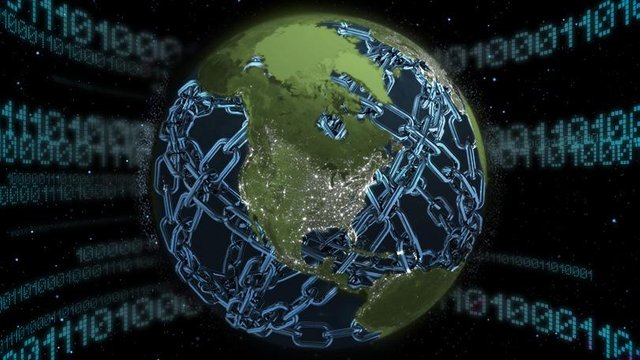Blockchain: The Invisible Technology That's Changing the World

What is blockchain technology?
Blockchain is the digital and decentralized ledger that records all transactions. Every time someone buys digital coins on a decentralized exchange, sells coins, transfers coins, or buys a good or service with virtual coins, a ledger records that transaction, often in an encrypted fashion, to protect it from cybercriminals. These transactions are also recorded and processed without a third-party provider, which is usually a bank.
Why was blockchain invented?
The main reason we even have this cryptocurrency and blockchain revolution is as a result of the perceived shortcomings of the traditional banking system. What shortcomings, you ask? For example, when transferring money to overseas markets, a payment could be delayed for days while a bank verifies it. Many would argue that financial institutions shouldn't tie up cross-border payments and funds for such an extensive amount of time.
Likewise, banks almost always serve as an intermediary of currency transactions, thus taking their cut in the process. Blockchain developers want the ability to process payments without a need for this middleman.
What are its prime advantages over current networks?
So, what does blockchain technology bring to the table that current payment networks don't? For starters, and as noted, it's decentralized. That's a fancy way of saying that there's no central hub where transaction data is stored. Instead, servers and hard drives all over the world hold bits and pieces of these blocks of data. This is done for two purposes. First, it ensures that no one party can gain control over a cryptocurrency and blockchain. Also, it keeps cybercriminals from being able to hold a digital currency "hostage" should they gain access to transaction data.
Second, removing the middleman from the equation and working around the traditional banking system should allow for smaller transaction fees. What's unclear is if lower fees would mean cheaper fees for the consumer, or just bigger profits for businesses deploying blockchain technology.
Third, and maybe most important, blockchain offers the potential to process transactions considerably faster. Whereas banks are often closed on the weekend, and operate during traditional hours, validation of transactions on a blockchain occur 24 hours a day, seven days a week. Some blockchain developers have suggested that their networks can validate transactions in a few seconds, or perhaps instantly. That would be a big improvement over the current wait time for cross-border payments.
How are blockchain transactions validated?
Processing transactions on blockchain also comes with the issue of ensuring that the same cryptocurrency coin isn't being spent twice. That's where transaction validation comes into play.
There are two primary ways that transactions on blockchain are validated: proof-of-work (PoW) and proof-of-stake (PoS).
Bitcoin runs on the PoW model. What happens with PoW is that cryptocurrency miners (a fancy term for people with really high-powered computers) compete against one another to solve complex mathematical equations that are a result of the encryption protecting transactions on a blockchain network. The first miner to solve these equations, and in the process validate a block of transactions, receives what's known as a "block reward." For bitcoin, a block reward is paid as a fraction of digital bitcoin.
The other primary validation method is PoS. Rather than using a ton of electricity in a competition to solve equations, the PoS method awards the owners of virtual coins the opportunity to validate transactions in a deterministic fashion. In even plainer terms, the more coins you own of a virtual currency operating on the PoS model, the more likely you are to be chosen to validate blocks and add to the blockchain.
It's worth pointing out that while the PoW method hands out block rewards as virtual coins, the PoS model rewards its stakeholders with the transaction fees paid by the users of the block that's being verified.
good writing I like. expand the work again, and more articles. hopefully a little science that you provide useful to the reader
do not forget to follow me @amirdesaingrafis